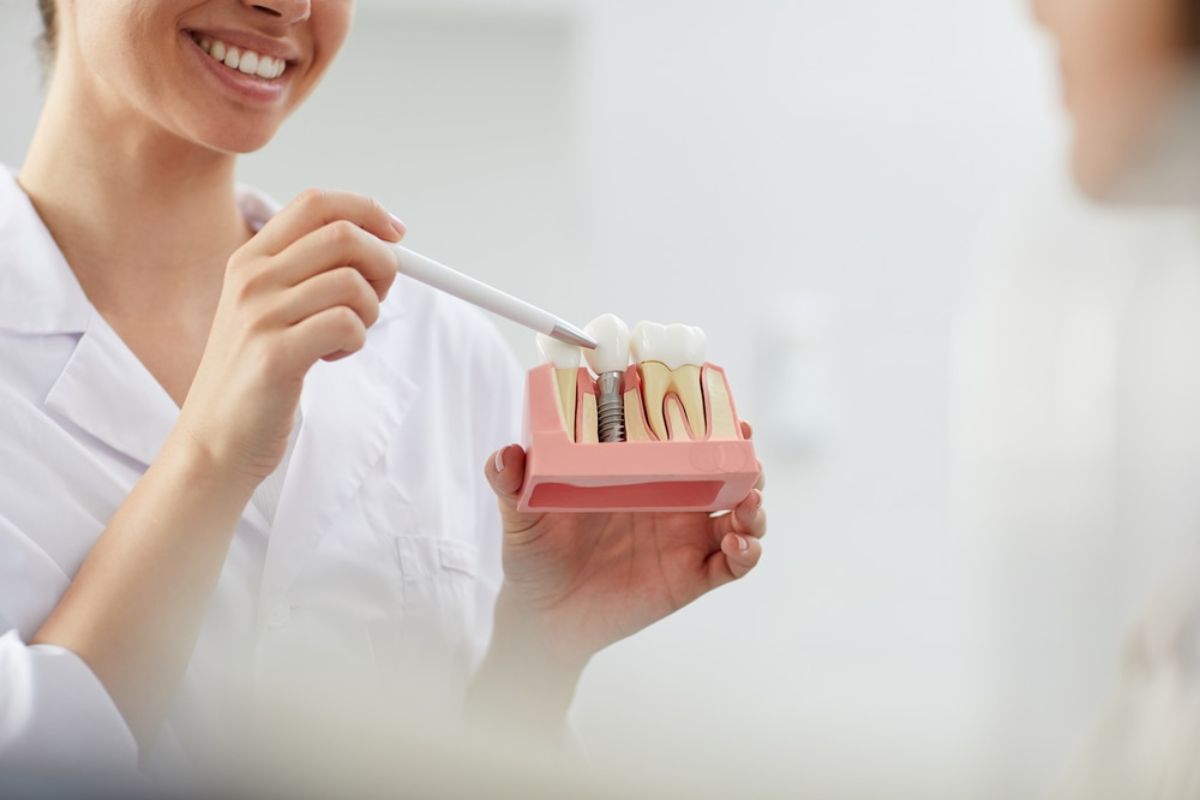Dental implants are a game-changer for individuals looking to restore their smile and regain confidence. However, adjusting to dental implants can come with a few challenges, particularly when it comes to speech. If you’ve recently undergone this procedure, you may notice slight changes in the way you pronounce certain words or sounds. The good news is that these adjustments are temporary, and with some practice, you can improve your speech significantly. In this blog, we’ll explore how dental implants affect speech and share practical tips to help you regain clarity and confidence in your communication.
How Do Dental Implants Affect Speech?
Dental implants are designed to replace missing teeth and function like natural teeth. However, when the implants are first placed, your mouth needs time to adjust. Some common speech-related issues include:
1. Adjusting to the Size and Shape of Implants
Dental implants might feel foreign at first, especially if they replace multiple teeth. This can impact how your tongue interacts with the roof of your mouth and teeth, which is critical for clear speech.
2. Increased Saliva Production
Your body might initially perceive the implants as a foreign object, triggering increased saliva production. This can cause minor lisping or slurring until your mouth adjusts.
3. Changes in Tongue Placement
The presence of implants can alter the natural resting position of your tongue, leading to difficulty pronouncing certain sounds, particularly “s,” “sh,” or “z.”
Understanding these temporary challenges can help you stay patient and motivated as you work on improving your speech.
Practical Tips to Improve Your Speech
Speech improvement after dental implants requires a combination of practice, patience, and professional guidance. Here are some strategies to help you adapt:
1. Practice Tongue Exercises
Specific tongue exercises can help you adjust to the new structure in your mouth. Try these simple activities:
- Tongue Stretches: Gently stretch your tongue forward and side-to-side to increase flexibility.
- Pronunciation Drills: Focus on sounds that you find challenging, such as “s,” “sh,” or “th.” Repeat these sounds slowly and clearly.
2. Read Aloud
Reading aloud is an excellent way to improve your speech. Choose a favorite book, magazine, or even song lyrics and read them out loud daily. Pay attention to your pronunciation and enunciation.
3. Use a Mirror
Practicing speech in front of a mirror can help you monitor your mouth movements and tongue placement. This visual feedback can make it easier to identify and correct any issues.
4. Speak Slowly
Rushing your words can make it harder to adapt to your new implants. Take your time when speaking, focusing on each word. This will help you articulate more clearly and reduce any slurring.
How Long Does It Take to Adjust?
The time it takes to adjust to dental implants varies from person to person. Some individuals may feel comfortable within a few weeks, while others may need a couple of months to adapt fully. Consistent practice and patience are key to speeding up the adjustment process.
When to Seek Professional Help
If you find that your speech issues persist despite practicing regularly, it might be time to consult a professional. Here are a few options:
1. Speech Therapist
A speech therapist can provide specialized exercises and guidance tailored to your specific challenges. They can identify the root cause of your speech issues and create a personalized improvement plan.
2. Follow-Up With Your Dentist
If your implants are causing ongoing discomfort or speech difficulties, schedule a follow-up appointment with your dentist. They can assess whether the implants need minor adjustments to improve your comfort.
The Role of Confidence in Speech Improvement
Feeling self-conscious about your speech can make it harder to communicate effectively. Building confidence is just as important as practicing your pronunciation. Remember, the more you practice, the more natural your speech will become. Surround yourself with supportive friends and family who encourage your progress.
Foods to Avoid While Adjusting to Implants
While you focus on improving your speech, it’s also essential to avoid foods that could hinder your adjustment process. Sticky or hard foods can cause discomfort and make it harder to adapt to your implants. Opt for softer foods during the initial adjustment period to keep your mouth comfortable and free from unnecessary stress.
Improving your speech after dental implants is a gradual process, but with the right approach, it’s entirely achievable. Practice regularly, be patient with yourself, and don’t hesitate to seek professional guidance if needed. Remember, your dental implants are designed to enhance your quality of life, and regaining your speech is an essential part of that journey.
If you’re considering dental implants or need assistance with your recovery, reach out to a trusted Dental Implants provider today to guide you through every step of the process.





Comments